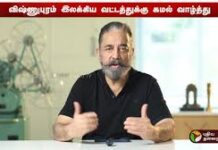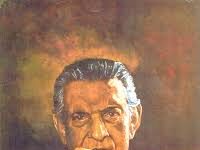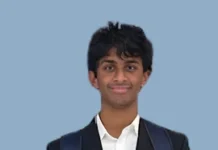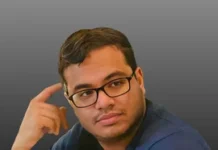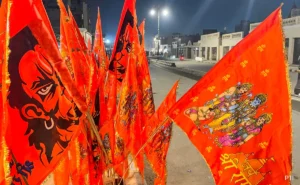
Why do my friends label as ‘Hindutva’ anything about Hindu traditions. Like references in Vishnupuram. What exactly do these people call as ‘Hindutva’?
sankar
Dear Sankar,
A repetition though.
A small historical sketch. India was a thriving civilization in lifestyle, art and science. Like China, Egypt and Greece. Nobody can refute this. But a steady decline started in this grand tradition from the 12th century onwards. The attacks on India from outside destroyed its structure.
Grand civilizations move towards their destruction in their natural course of progression. This is because advancement in culture takes it towards plurality. Each of its constituents will grow individually. These components that grow will be contradictory to each other. At that level, it will no longer be a singular, strong warring society. They will be defeated by some fierce, unitary society which has a less advanced culture.
A stagnation of seven hundred years. After that, a renaissance began in the eighteenth century. The reason was English education. Contact with Europe. They call it Indian renaissance / Hindu renaissance. Hindu reformist movements such as Brahmo samaj, Ramakrishna Mission, Narayaguru movement, Vallalaar movement etc. were formed. India’s ancient culture was rediscovered. It was defined anew.
This renaissance blossomed into the Indian war for independence. India obtained freedom. This grand movement yielded fruits such as Tagore, Bharathi, Kuvembu, Kumaranaasan, Premchand, Manik Bandopadhyay, Sivaram Karanth, Pudhumai Pithan, Tarashankar Banerjee and a hundred other luminaries.
At that time, there was a grand dream. To take forward India’s tradition of wisdom, science and philosophy from the point where it had been cut off and on par with modern world’s intellectual discourse. It was repeatedly spoken about in the nineteenth century. There were two faces to Indian renaissance. To imbibe the best cultural aspects of Europe and to develop the various sections of Indian culture.
But after Independence, an important change happened in the world view of Indians. Though moulded by the Indian Independence movement, Nehru, who had no faith in the Indian tradition of wisdom and who blindly worshipped European traditions, became the Prime Minister. Having witnessed the great famines of India first-hand, eradication of poverty alone seemed important to him. He designed the education systems and thinking required to achieve this particular objective. Also, the major religious riots and the resultant animosities intimidated them. They planned to separate education from religion.
The education system created by Nehru and his close associates like Mahalanobis, P. N. Haksar kept aside anything related to Indian traditions as related to religion. If any country has created an education system that doesn’t teach even a single word of its philosphical traditions (one of the grandest in the world) to its students, it has to be India. There is no parallel to this before or since in human history. An entirely European education system became the common, public education system here. An education that could feed became the only education here.
During the British rule, the hatred towards Indian traditions and Hindu traditions in the Indian intellectual space was systematically planned and developed. During the Independence movement, this was restricted due to sentiments that prevailed at that time. After freedom, our modern education fed it and increased it to enormous proportions. Almost every educational institution and cultural department was filled with those who despised India and Hindu traditions.
In the 1970s, when the fear arose that India could become a strong nation, [Strategists like Chester Bowles record this fear. India’s nuclear tests and attempts to become a regional power were also reasons] global powers started an indirect war against India in the intellectual space.
Hence any thought process against Indian unity started receiving lots of money. Anybody who had an anti-India stance flourished with funds. They alone received grants, travel opportunities, awards and international recognition. Anybody who spoke even slightly in favor of Indian and Hindu traditions was ostracised without a single exception.
Since it was believed that Indian unity was a result of the Hindu religion, foreign powers maintained the practice of denouncing and defaming the Hindu religion almost as a major industry. The sheer opposition to being Indian and Hindu was an impregnable force amongst our intelligentsia, media and education. It still continues. It created thought processes and beliefs that reach the youth of today as single sentences. They believe that repeating them makes them appear as a modern and forward thinking person.
On the other hand, in 1925 Hindutva politics began in India. It was an attempt to gather the sentiments created by Indian national renaissance and Hindu religious renaissance as a politcal force. After the Muslim League was formed and Islamism became a political force, Hindu religious politics began as its response . It grew gradually through the mistakes of the Congress. By the 1980’s it became a potent political force and has captured power today.
Hindutva reduces the Hindu religion to a singular identity and gather popular support through that. It has no relation to the Hindu tradition of wisdom, Hindu philosophical traditions and the Hindu religion. Hindu traditions are pluralistic in nature. They grew and evolve by conflicting with each other. But opponents of Hinduism and India have constantly claimed that the politics of Hindutva and the Hindu traditions are one and the same. It has to be considered as an attempt to defame, marginalize and destroy the Hindu traditions.
This is the background. As a writer, I have a deep faith in the Hindu tradition of wisdom. I come from the Vedanta school of philosophy of Narayana Guru. In terms of philosophy, I agree with the Hindu and Buddhist traditions. I express them in my writings. I think that if thoughts and literature that are based on Hindu and Indian traditions grow and extend, it would be a great bounty for world civilization. This was the dream of Vivekananda, Tagore and Bharathi as well.
I am a modern writer. Hence I do not put forth belief systems. I analyze, dissect and argue. Moreover, I dream through the imprints that these traditions have given me. Through those dreams, I reach the depths of my tradition’s inner mind. I present them through the language of my times. I am the contemporary extension to a civilisation and literary movement that are several thousand years old. I consider myself as a continuation in the line from Kamban, Kalidasan and Bharathi.
As a Hindu, I am not an enemy of any religion. I try to attach everything to myself. As a nationalist, I accept the secular India that Gandhi proposed. In my India, everyone else shares the same space as Hindus.
The haters of Hinduism and India cannot accept me due to their politics of hate. They cannot understand me either. They can engage with me only through defamation, malice and bitterness. They can talk about Hindu traditions, Hindu wisdom and Indian nationalism only after branding it as Hindutva politics. That is their plan of action. They have been appointed for that purpose. And they are paid for that as well.
Those who read my creations know what I am writing. It is not religiousness. It is not even religion. It is modern thought and literature that is written standing as a contiguous point in line with a grand civilization. My readers are those who understand that. I do not worry about those who do not understand my writings. The smoke created by the propaganda of Hindu and Indian opponents will disperse. Then, I will be known as a writer who approached and advanced this civilization critically.
– Jeyamohan
Translated by Gokul

